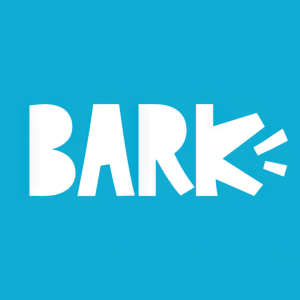BARK Survey Reveals 7 in 10 Dog Parents Will Miss Their Dog When They Return to Work; Far Fewer Will Miss Their Spouse or Children
New dog parent study explores challenges dog parents face as return to office approaches
Dog and dog parent relationships strengthened during the pandemic
-
Seven in 10 (
70% ) dog parents report that their relationship with their dogs grew stronger due to the pandemic. This is significantly more than those who say the same about their relationships with their spouses (49% ), their kids (39% ), their friends (31% ), or their parents (28% ). -
Women are significantly more likely than men to report they leaned on their dog for emotional support (
36% vs.26% ) and spent more time with their dog (50% vs.41% ) this past year than ever before. -
Men are more likely than women to report that they grew closer to their spouse during the pandemic (
52% vs45% ), and equal numbers of men and women assert their relationship with their dog grew stronger (71% and70% ). -
About 1 in 3 dog parents report that they relied on their dog over the last year to keep them company (
33% ) and for emotional support (30% ) more than they ever have. -
Dog parents say that they grew closer to their dogs because of the pandemic (
73% who returned to work,70% of those still working from home and69% of those who never worked from home).
Dog parents are skeptical about returning to the office with and without their dog
-
About Seven in 10 (
71% ) dog parents who are still working from home believe they will miss their dog. This is significantly more than those who report they will miss their spouse (42% ) or children (39% ) when they return to the workplace.-
About 3 in 4 (
72% ) dog parents who have already returned to work miss their dog while they are back at the office. This is greater than those who miss the savings from not commuting (37% ), their partner (39% ), or children (35% ).
-
About 3 in 4 (
-
About 1 in 3 (
32% ) dog parents believe that they would be happier and less stressed at work if they had their dog with them, and28% feel that their life would be more convenient if they had this option. -
About 1 in 4 (
24% ) dog parents who’ve returned to the office check their dog camera during working hours. -
One in 5 (
20% ) dog parents shared that they’d be more productive at work if they had their dog with them.
Dog parents are more likely to want benefits for their dogs than their children and seek workplaces that are dog-friendly
-
Nearly 4 in 5 (
78% ) dog parents report that their current employer has not made any adjustments to their workplace policies on bringing dogs to work. Among this group, 2 in 3 maintain that dogs have never been and are still not permitted. Only10% say their office has updated its policies to allow pets in the wake of the pandemic. -
42% of dog parents believe that employers should offer dog benefits as part of the employee benefit package (vs.37% who feel the same about benefits for children), such as bringing dogs to the office (28% vs.15% who want to bring children to the office) and an almost equal amount who want doggy daycare (28% ) and childcare (29% ) at or near the office. -
Only 2 in 5 dog parents who are permitted to bring their pup to work say that their employer supplies the basics like food and water (
45% ) and treats (42% ). Around 1 in 3 (34% ) report that their employer currently offers dog walking services (38% ) and even fewer report there is a dog-proofed environment, clear of exposed wires, toxic products, or open food (32% ), toys (33% ), or relief zones in or near the office (25% ). -
About 1 in 3 dog parents that are permitted to bring their dog to work and have reported at least one instance in which they felt uncomfortable doing so admit they’d feel more at ease if their employer supplied a designated indoor area for play (
37% ), a dog-proof environment (31% ), or even treats (36% ).
To help ease the transition back to the office for employers and employees with dogs, BARK is offering
“BARK is devoted to making all dogs happy, and we believe dogs and humans are better together. That’s especially true at the office,” said
BARK was founded in 2012 and has since served more than 6.5 million dogs around the world across categories including Play, Food, Health and Home. To learn more about BARK, visit BARK.co.
Study Methodology
The BARK study was commissioned by BARK and conducted by Kelton Global, a
About BARK
BARK is the world’s most dog-centric company, devoted to making dogs happy with the best products, services and content. BARK’s dog-obsessed team applies its unique, data-driven understanding of what makes each dog special to design playstyle-specific toys, wildly satisfying treats, personalized meal plans and supplements, and dog-first experiences that foster the health and happiness of dogs everywhere. Founded in 2012, BARK loyally serves dogs nationwide with themed toys and treats subscriptions,
| ___________________________ |
1 |
View source version on businesswire.com: https://www.businesswire.com/news/home/20210928005697/en/
Investors:
investors@barkbox.com
Media:
press@barkbox.com
Source: The






